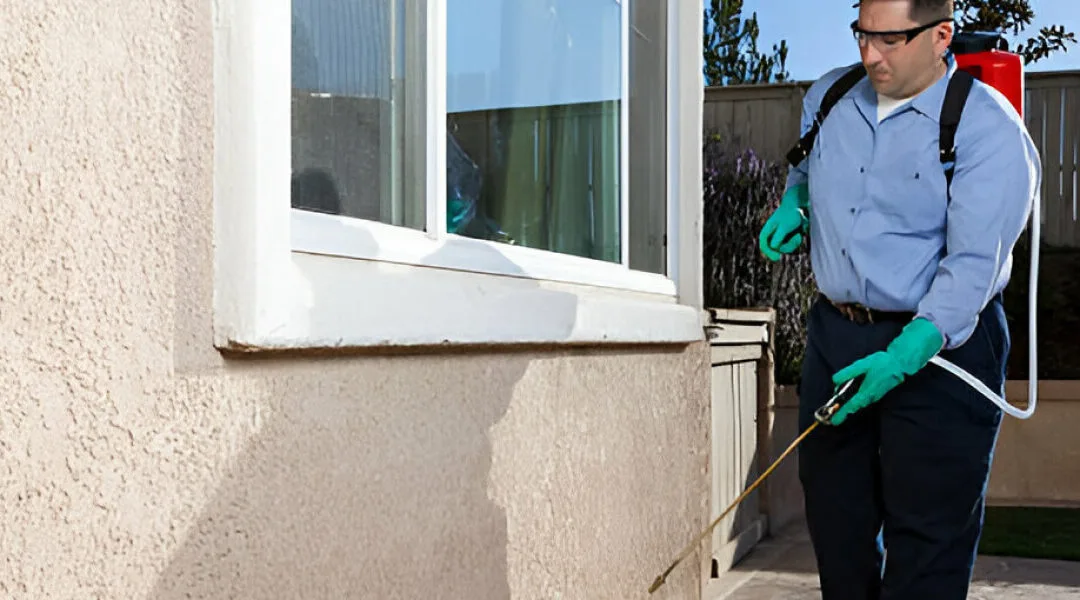Tips to Prevent Pest Infestation During the Monsoon Season
The monsoon season often brings with it a surge in pest activity as insects seek refuge from the wet conditions outside. These pests can pose serious health and hygiene risks. Here are some effective steps to prevent pest infestations during this time.
Maintain Cleanliness
Keeping your home clean is essential to deter pests. In addition to regular cleaning, make sure to promptly remove food crumbs and spills. Keep trash bins tightly sealed and ensure daily disposal of garbage. Pay special attention to kitchen counters, sinks, and floors, cleaning them thoroughly after cooking to eliminate food residues.
Eliminate Standing Water
Stagnant water is a breeding ground for disease-causing pests. Repair leaky pipes, faucets, and roofs promptly to prevent water accumulation. Regularly check and drain any standing water in flower pots, buckets, and other containers. Keep gutters and drains clear of debris to avoid water buildup.
Also Read: How to resolve water leakage from roof?
Seal Entry Points
Prevent pests from entering your home by sealing cracks and gaps in walls, windows, doors, and foundations. Use window screens and door sweeps for added protection. Mesh covers on vents and chimneys can also help keep pests out while allowing for proper ventilation.
Proper Food Storage
Store food in airtight containers to keep pests at bay and prevent spoilage due to moisture and humidity. Refrigerate perishable items and avoid leaving food out overnight, including pet food.
Yard and Garden Maintenance
Maintain your yard and garden to reduce the risk of pest infestations. Trim plants, shrubs, and trees away from the house. Regularly mow the lawn and remove fallen leaves and debris. Treat water features with pest control products to prevent mosquito breeding.
Pest Control Measures
Regularly inspect your home and property for signs of pest infestations. Treat the perimeter of your home with appropriate pesticides or use natural repellents like neem oil or citronella. For major infestations, consider hiring professional pest control services.
Also Read: How to create a vertical garden in small spaces?
Home Environment Management
Ensure proper ventilation to combat dampness and humidity during the monsoon season. Use dehumidifiers in moisture-prone areas. Place cedar blocks or sachets of dried herbs like lavender, bay leaves, and cloves in enclosed storage spaces to deter pests.
Proper Waste Management
Composting can attract pests if not properly managed. Keep compost pits well-maintained and away from the house. Rinse reusable food containers to remove residues. Keep outdoor garbage bins closed and stored away from doors and windows.
Monitor for Specific Pests
Mosquitoes are a common issue during the monsoon. Use mosquito nets, traps, and repellents, and regularly eliminate breeding sites. Monitor wooden structures for termite activity and treat as necessary. Use bait stations and gel baits to control ants and cockroaches.
Educate Household Members
Ensure all household members understand the importance of cleanliness and proper food storage. Encourage them to keep doors and windows shut properly and to report any signs of infestation immediately.
By following these steps, you can significantly reduce the risk of pest infestations during the monsoon season and maintain a healthy, hygienic home environment.
Also Read: How to clean a gas stove at home?

Ans 1. Try pest prevention first. Remove garbage regularly from your home. Fix leaky plumbing and don't let water accumulate anywhere in the home. Don't let water collect in trays under your house plants or refrigerator. Don't leave pet food and water out overnight.
Ans 2. The space should be deep cleaned to remove any further insect populations, and any food source they might be feeding on. Any issues with tidiness and housekeeping should be addressed. Depending on the type of space, and scale of infestation, an insecticide treatment may be necessary.
Ans 3. The best method for pest control is typically integrated pest management (IPM), which combines various physical, biological, and chemical methods for a tailored approach. According to the Environmental Protection Agency (EPA), IPM involves the following: Monitoring and identifying pests.
Ans 4. The control function can be viewed as a five-step process: (1) establish standards, (2) measure performance, (3) compare actual performance with standards and identify any deviations, (4) determine the reason for deviations, and (5) take corrective action if needed.
Ans 5. Safety suggestions for indoor use of pesticides Remove (or cover) food, cooking utensils and other personal items from the area to be treated. Thoroughly clean kitchen benches before preparing food. Avoid applying surface sprays to areas commonly touched by family members, such as furniture.